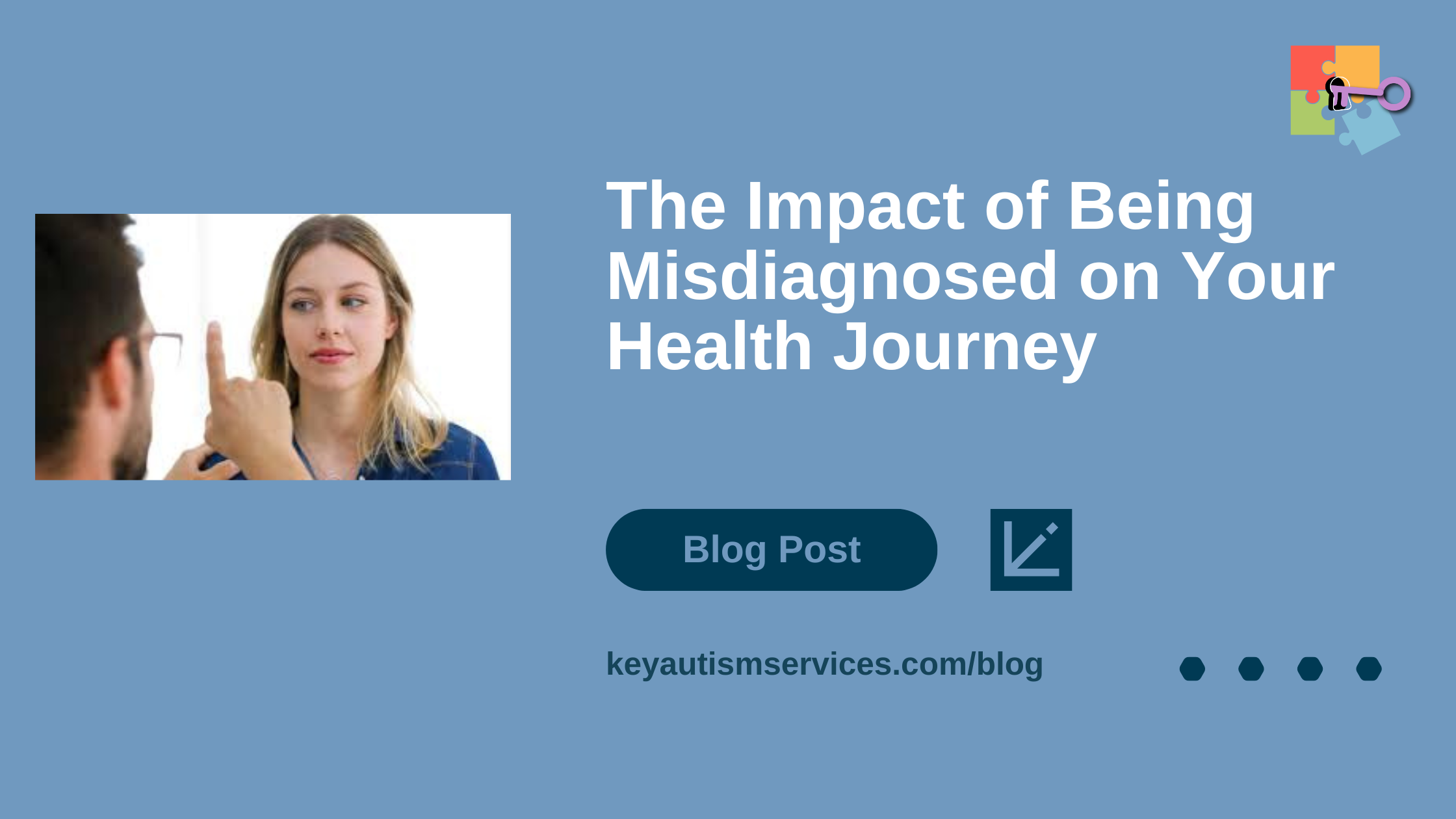Being misdiagnosed can be a frustrating and disheartening experience for individuals seeking medical help. Misdiagnosis can have serious consequences for patients. It can result in delayed or inappropriate treatment, worsening of symptoms, unnecessary procedures, and even irreversible harm. Additionally, a misdiagnosis can lead to financial burdens, as individuals may incur expenses for treatments that do not address the root cause of their condition. In this blog post, we talked to Susan, twenty-three, about her experience with her misdiagnosis.
Can you share your experiences with being misdiagnosed?
I did not get diagnosed with Autism until last year. I have always received treatment for anxiety and OCD, but I always felt that something was off that the doctors were not catching. I have been going to therapy since I was young, but I kept doing the same things. My doctors kept medicating me for something that did not change. I was overdosed on medications, and I hated who I was because I didn’t understand why I did the things that I did. I was beating myself up because I was trying to rewire something that can’t be changed. When I finally received the Autism diagnosis it all clicked. I hated myself because I didn’t know why, but with the correct diagnosis, the self-hated turned into love and growth.
How did the misdiagnosis affect your personal relationships?
Some people would get irritated with me, they would tell me things multiple times and I didn’t get it. With the ASD diagnosis, they understood that I can’t process things the way others do. Others thought I was being defiant, but I was just not understanding. I wanted to change but I couldn’t. That correct diagnosis brought accepting with not just myself but others that I am close to. They started to realize that I can’t rewire my brain!
Not having a diagnosis caused years of self-harm and hate. I forgave the doctor who gave me the incorrect diagnosis, but I was angry towards her because it ruined my life. She was treating me for something that was untreatable. When I was younger, I started speaking with phrases. People thought individuals with Autism are nonverbal, so no one thought I had it because I was verbal. I was also overly empathetic, if someone were crying, I would cry. My parents also made sure that I made friends. It was only when I went to college, and I did not have family support, that my social life fell apart. I didn’t understand that other people don’t think the same way I do. I always thought others felt and thought the same way which brought a lot of confusion.
Everyone knew me for 23 years without Autism so when I was diagnosed properly, I had to reintroduce myself. Informing people who I have close relationships with made things easier and relationships go easier. It helped to bring more understanding to those who I may have come off as defiant or malicious. I walk a fine line and present myself well, so strangers wouldn’t think I have a diagnosis. It does show up in different ways, but I can get away with acquaintances not knowing.
Did the misdiagnosis lead to any unnecessary treatments or interventions? If so, how did that impact you?
Yes, I received exposure therapy in the past. I wore a TMS helmet which sends pulses to the brain. A lot of it was depression caused by the misdiagnosis. I have a pain disorder and stims from ASD as well. I have sensory pains that are associated with ASD where I throw up which was a sensory thing, but at the time it was viewed as an eating issue. The spectrum is deeper than people think. I was highly medicated, but once I was off medications, I finally felt like myself again. The medications were treating something that was not treatable with medications. I lost years of my life with that misdiagnosis. I grieve that time that was lost every day.
What pushed you to get a second opinion?
The medications pushed me to get a second opinion. When I went to a different doctor, they recommended that I receive a brain scan that measured me against people with Autism. It traces how the neurotransmitters are thinking and overlaps with individuals with ASD. With that brain scan, I finally was able to get the proper diagnosis and treatment. Getting a diagnosis is hard but it brought more love for myself than ever before. I was depressed for most of my childhood because I was different, and no one knew why. If brings you acceptance, then get the second opinion, it’s worth it!
Being misdiagnosed can be a challenging and emotionally draining experience. However, by advocating for accurate diagnoses, seeking second opinions, and actively participating in the diagnostic process, individuals can increase their chances of finding the right answers. Remember, you are your own best advocate when it comes to your health.
If you or someone you know is questioning a diagnosis and is looking for resources, you can check local chapters through, or contact Key Autism Services for more information by clicking HERE.
Autism Speaks: https://www.autismspeaks.org/resource-guide
Autism Society: https://autismsociety.org/resources-by-topic/





